This post was written by Isaac Alexandre-Leach, GMC’s Lead Caretaker on Camel’s Hump.
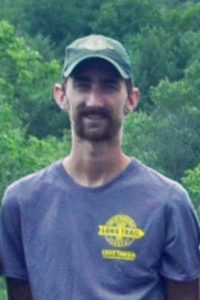 Hiking in the Green Mountains, you are all but guaranteed to notice certain things: trillium, grouse, mud, trailside bags of dog poop, and the list goes on. Perhaps the most noticeable mainstay of the Long Trail, and the one most likely to gently interrupt your lunch, is the GMC Caretaker. That’s me. We are easy to spot, trying to eat lunch in a stiff summit wind or running off to corral hikers who have walked too far off trail. Much of our time is spent in conversation with hikers.
Hiking in the Green Mountains, you are all but guaranteed to notice certain things: trillium, grouse, mud, trailside bags of dog poop, and the list goes on. Perhaps the most noticeable mainstay of the Long Trail, and the one most likely to gently interrupt your lunch, is the GMC Caretaker. That’s me. We are easy to spot, trying to eat lunch in a stiff summit wind or running off to corral hikers who have walked too far off trail. Much of our time is spent in conversation with hikers.
These talks often start with a friendly reminder of the special needs of the local ecosystem, be it an alpine summit or a pond, and then take a broader turn. At some point, I like to ask hikers where they are from. It is interesting to hear how people from different places experience Vermont, and their answer can be a gauge of their knowledge: “Warren” is probably familiar with the local trails, while “Orlando!” may not be. As much as I like to hear everyone’s answers, this question also tends to lead to the same slightly strange interaction. After explaining where they are from, many people ask the same question of me. “Where are you from?” “Well, we are based out of the GMC headquarters in Waterbury, but I live… here on the mountain!” This is often taken as “I spend a lot of time on the mountain.” What I mean is that caretakers really live on their mountain, or at their pond, for the summer and/or fall. We have days off, but spend five nights a week in the woods. Our tent or shelter is truly our home.
This has been at the front of my mind in recent days because we are in our last week of the caretaking season. Caretakers move to our sites at the end of June and stay until mid-October (with some turnover mid-August). As the season draws to a close, we are preparing to leave not only our jobs, but also our homes in the woods. The line between the two can be blurry.
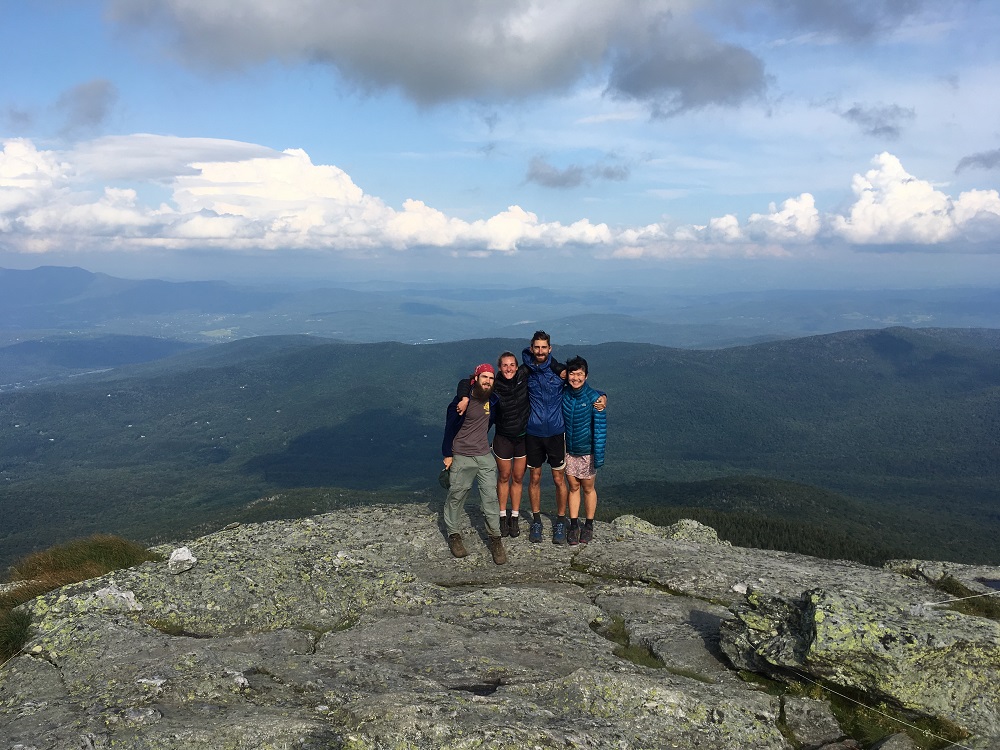
Depending on location, caretakers spend a third to a half of their time doing trail maintenance. This is not the large-scale rock work that the Long Trail Patrol performs. Caretaker trail work is about opening drains, maintaining structures, and keeping the trail clear of obstructions. It is slow, repetitive work. We spend the last days on the mountain clearing drainages of newly fallen leaves to reduce clogging come spring snowmelt. As we make our last pass over each trail, we see projects we have completed, and ones that will wait for next year. It is odd to get sentimental about your daily commute, but we really do have such a pretty one.
Much of the rest of a caretaker’s time is spent on their summit or at their pond. This is where you see us, most likely. Throughout the season, I encourage my crew on Camel’s Hump to maintain a personal relationship with the summit, not just a professional one. We spend our time on the summit educating hikers about the alpine vegetation, answering questions about trails, and taking pictures for those who still resist selfies. Some days are idyllic, and others make you hope for a sudden hailstorm to provide some peace and quiet. No matter how frustrating a day might be, you have to be able to take your GMC hat off, find a quiet spot to sit, and enjoy living in such a place. In these last days, it is easier to stay a little later up top to see the sunset or wake up early enough for a foliage sunrise.
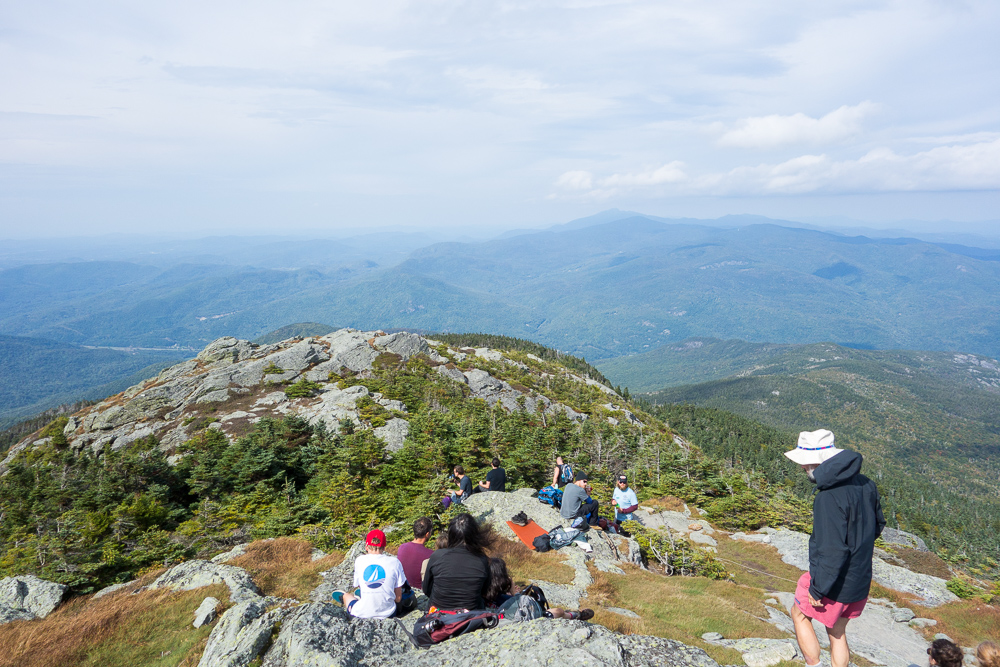
Campsite and privy maintenance round out the caretaker repertoire, and finishing these tasks for the season can be a chore. With any luck, the campsite has remained in good shape through constant trash pickup, brushing in unwanted tenting spots, and the cooperation of respectful hikers. The caretaker tent can be another story, as a season’s worth of comforts must be packed out. Pillows, lights, books, blankets, letters, camp chairs, and all sorts of decorations and amenities speak to the idea that caretakers aren’t camping for the season. Camping is spartan. We live in the woods, and our small tents are our house and bedroom, in one.
Working with privies is a constant task for caretakers, and the one we are most likely to bring up when someone declares, on a sunny day on the summit, that we have a “dream job”. (Maybe we do, but it sure involves worse smells than most people imagine.) Maintaining composting is not glamorous work. Dealing with raw sewage is never the highlight of the day, especially when a youth group has recently stayed the night. (Please, please, please, do not pee or put garbage in composting outhouses. Dry sewage is manageable. Wet, trashy sewage is a profound bummer.) However, each caretaker looks on their composter with some degree of ownership and pride, and taking out the last batch of the season provides the happiness of a job well done, and not to be returned to. (Please, please, do not pee in composting outhouses.)
By the time this goes up on the GMC blog, the caretakers will be out of the field for the season. The Green Mountains will be fine without us for the rest of the year—we are not defending the Long Trail, only stewarding it. It is a privilege to be a caretaker, which none of us take for granted. Next June, as the outhouses start filling again, keep an eye out for next year’s caretakers, as they strap their pillows to the outside of their packs and head up the trail to their new home.
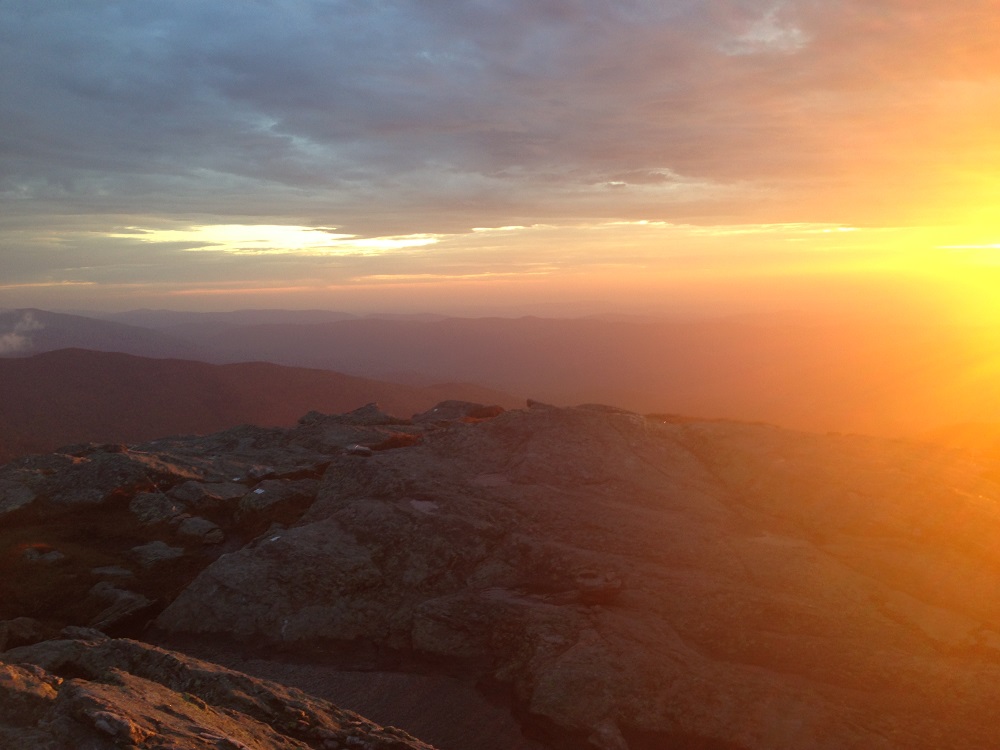



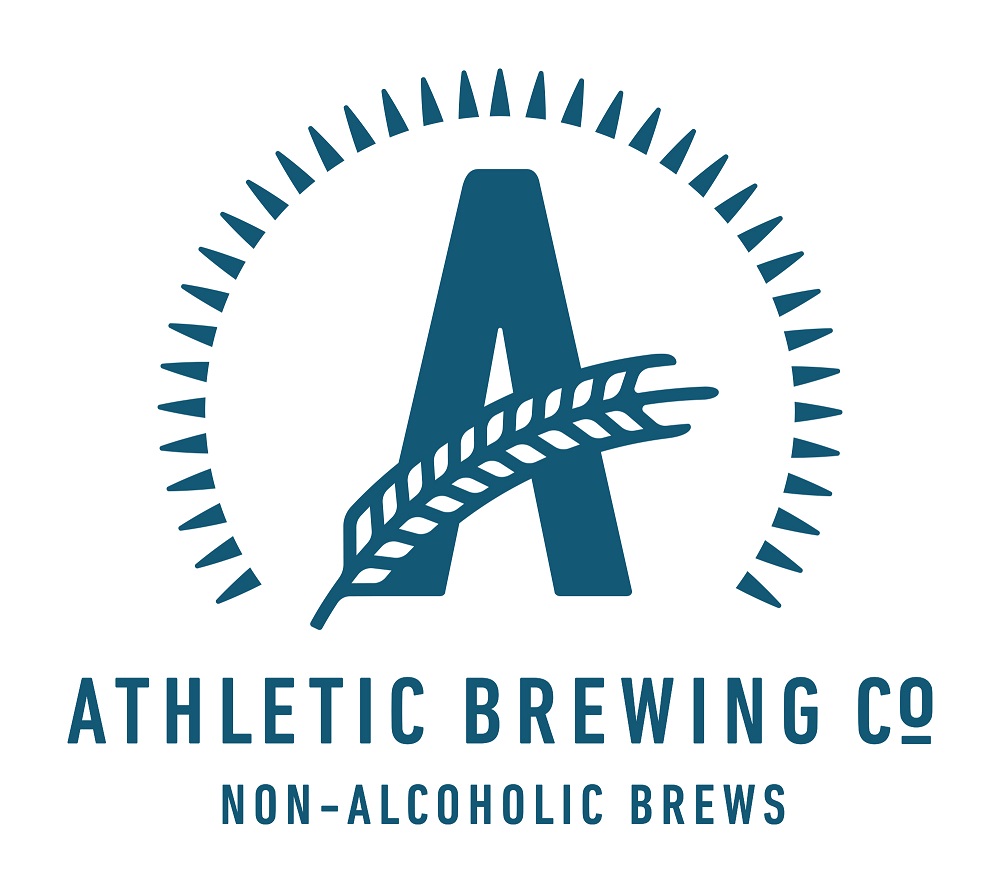
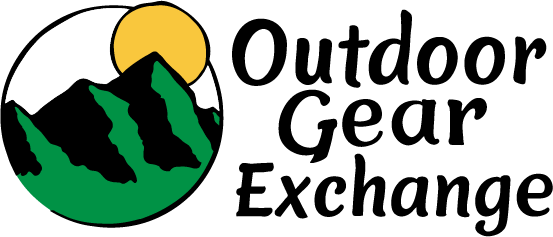
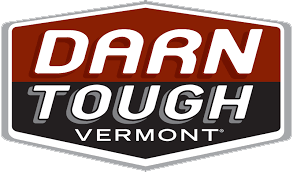

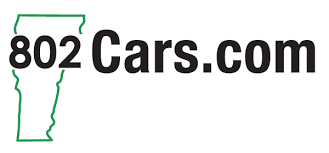






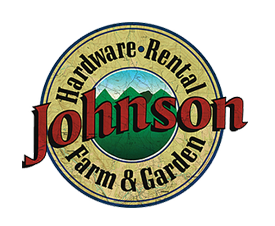




Are the LT privies all marked as to pee or no pee? I don’t know which is which. Thank you, all caretakers, for the hard work you do!
Hi Sue! We try to put signs on all the privies but sometimes they go missing. Of the three types of privies, the one you should not pee in is the composting privy. Your best bet in identifying a composting privy is to look for a large plastic bin behind it. These are usually at higher use sites where we station caretakers in the summer and fall. You can learn more and see pictures of each type of privy at https://www.greenmountainclub.org/privy-privy-privy/
Dream job. I remember 35 years ago when I first climbed Camels Hump as a little kid. The Caretaker told me to stay off the grass. When I found out that he hiked up the mountain every day, I was amazed! I thought then…this is what I want to do when I grow up! However, you just shattered my dreams with the privy detail. I’m now no longer jealous. Just grateful! Thanks for all you do.
Yo Isaac. Great blog posting! Sorry our paths did not cross this summer. You and all the caretakers do such a tremendous job on so many levels. Well done! Hope to see you caretaking in 2018.
Bagged dog poop trailside makes no sense. Please, if you’re not going to pack it out, bury it unbagged. I know that’s not the right thing to do, but is better than putting it in a bag and then walking away. That just makes an unsightly, smelly problem for someone who does love and respect the trail.
Hi, Isaac! This is an amazing story! This shines some light on a hard work maintaining trails requires and great people who`s doing it so well. I was wondering, are hikers aware enough of the importance of your work and respect it deserves?